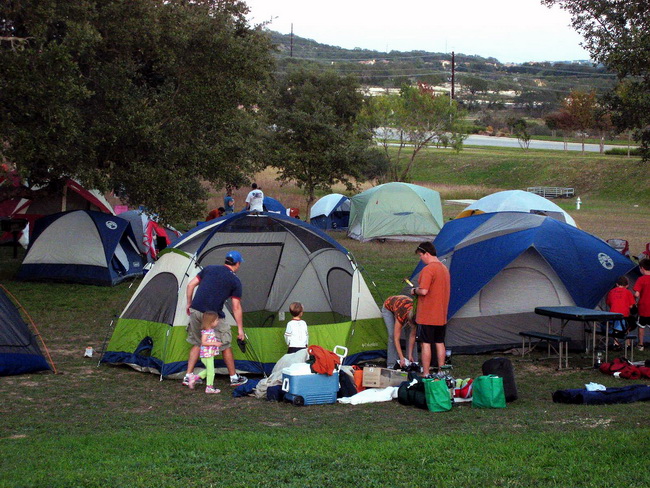In this article, we’ll discuss essential camping gear and how to choose good quality kit so that you don’t end up with all the gear but no idea!
I don’t know about you, but this past year has made me want to run to the hills like never before!
I’ve been eying up my camping gear for a while, mentally sorting out what needs to be repaired or replaced before the season starts. My inventory checks made me think and I figured the time is ripe for a camping gear article.
In this article, we’ll discuss essential camping gear and how to choose good quality kit so that you don’t end up with all the gear but no idea!
Essentials
The items on this list are essential. That means you should always carry them with you when you’re going camping. These are the items that will keep you safe and sound on your adventure.
● Tent or similar shelter.
● Tent pegs.
● Sleeping bag.
● Sleeping mat.
● Flashlights
● Matches.
● Stove and gas tank.
● Cooking pot.
● Food.
● Water.
● Water bottle.
● First aid kit.
● Waterproof coat.
● Insulated or warm clothing.
● Spare clothes.
● Sturdy footwear.
● Emergency rations
● Rucksack or holdall.
Optional extras
Of course, camping doesn’t have to be a survival game. You can have a level of comfort and luxury on your camping trip. Here are some other things to consider bringing.
● Pillows.
● Inflatable mattress.
● Chairs.
● Table.
● Lantern.
● Cutlery.
● Flatware.
● Cooler or icebox.
● Mugs or cups.
● Cards or games.
● Generator/portable power.
● Radio/CD player.
● Pajamas.
● Cleaning supplies.
● Toiletries.
● Towels.
● Books.
Now let’s take a closer look at some of the essential kit and what you should check before you head out.
Tents
Tents come in all shapes and sizes. Some are incredibly basic consisting of little more than some waterproof fabric and some poles. Others are decidedly opulent! They can include multiple rooms, windows, and even a porch.
When choosing your tent, you need to make sure that it has enough room for all occupants. You don’t want to be pressed up against the fabric of the tent, this will make you feel too cold.
You also don’t want your tent to be unnecessarily large. If you try to erect a 6 person tent on your own, it’ll end in tears!
Another thing to think about when choosing your tent is how you are planning on transporting your kit. If you’re going to be hiking to a campsite, you don’t want to be carrying a huge, heavy tent. In those cases, you’re better off getting several smaller, lighter tents that members of your party can carry.
The main thing to remember when looking for a tent is that it should be waterproof, windproof, and easy to assemble.
Sleeping bags
Sleeping bags are always a better choice than blankets from your home. Sleeping bags are designed to withstand very cold temperatures and to keep you toasty and warm.
Sleeping bags will have a comfort rating and a lower limit rating. These are given as temperatures. The idea is that the sleeping bag will be comfortably warm in the comfort range. The lower limit is where a warm person might still feel comfortable.
These figures are rough estimates more than rules. It’s always best to test your sleeping bag before you head out on an adventure to make sure it can keep you warm.
You might also see bags listed by season. A 1 season bag is generally only to be used in summer. 2 season bags can cope with cooler spring nights and summer nights. A 3 season bag is generally rated at around for as low as 23°F. A 4 season bag is designed for winter use including snow.
Stoves
As much as we all love the idea of cooking around a roaring campfire, the reality is many campsites don’t allow open fires. Also, campfires can become incredibly dangerous when not managed correctly.
We recommend taking a camping stove with you wherever you go. That way, even if campfires are banned, you can make yourself a hot meal.
There are lots of different kinds of stoves from large gas barbeques to small, spirit stoves. You should choose one that suits your camping needs.
If you’re on a large family vacation, you’ll want a fairly large and powerful stove that can feed you all at once. For solo campers, a smaller jet boil stove might be better.
Ultimately, like with the tents, you’ll need to strike a balance between size and portability. Large stoves come with large gas tanks. These are not ideal for backpacking campers.
Bags
Carrying your camping gear to and from your campsite doesn’t have to be a nightmare. The right bag can make it all a lot easier.
Even if you’re driving to a location, you’ll want an outdoor bag that can keep everything dry and safe.
We recommend a hiking backpack or an outdoor duffel bag. They are usually incredibly spacious, easy to carry, and perfectly suited for camping.
Don’t forget to buy a waterproof cover for your bag if it’s not waterproof in its own right. You don’t want a soggy sleeping bag!
Final thoughts
Camping is a wonderful experience. There’s nothing quite like it in my book.
Like any other outdoor pursuit, camping comes with risks. For the most part, you can minimize and avoid risks by preparing properly.
Always carry your essential kit, the fun or comfortable extras come second!
Rachel Jackson is Marketing Assistant at NWB Media.








































































































































































